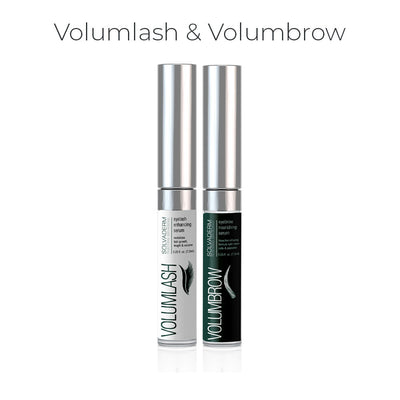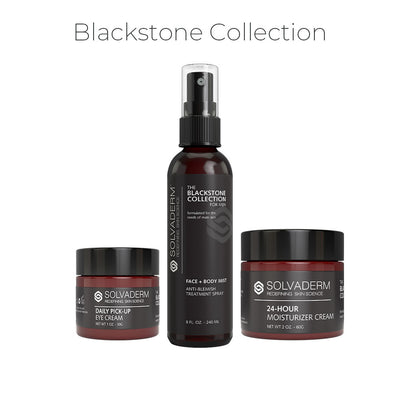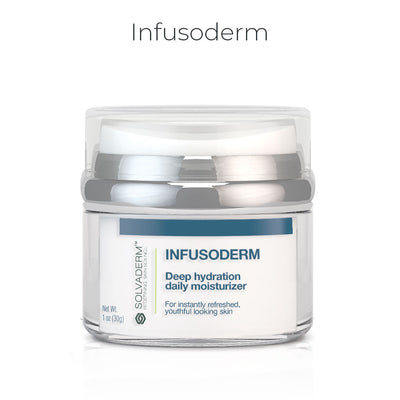With winter here and in full effect, your skin is starting to become ashy and dry. Dry skin can occur anywhere on the body, especially in the colder months. You might notice an ashy forehead or ashy legs since these are the most exposed to the sun.
Getting rid of ashy skin is possible, but it requires care and attention. Ashy skin can become severely dry, and result in an itchy, uncomfortable, or burning sensation in the affected areas. If you’re reading this, chances are, you’re looking for the answer to how to get rid of ashy skin. Here’s everything you need to know about getting rid of ashy skin.
Dry, ashy skin can present as:
Depending on the severity of the dryness, your skin may flake, peel, crack, and bleed. Even with proper at-home care and a diligent routine, you may still struggle with dryer skin.
Here are some causes of dry, ashy skin.
It’s very normal and common to experience ashy skin in the winter. When it’s cold outside, people crack their heaters or rev up the fireplace, which can ultimately dry out the skin even more. Dry heat can also lead to ashy skin since it wicks away moisture. Using moisturizer diligently and regularly can help restore your skin barrier.
It will be useless to moisturize skin that has layers of dead skin cells. You have to exfoliate regularly so that your moisturizer can penetrate the deeper layers of your skin.
Defending and protecting your skin should always be central to your skincare and bodycare routines. If your skin is excessively ashy, flaky, or dry, it could be a sign that you’re not using the correct products for your skin type. If you have dry skin (which most do when it comes to the body), you may need to use more intensive moisturizer and sunscreen.
Limit your use of hot water when bathing or showering if you’re trying to minimize ashy skin. Keep the water warm and be sure to use moisturizing body wash.
Medical conditions that cause ashy skin include but are not limited to the following:
Start using gentle cleansers, regular chemical exfoliants, and intensive moisturizers to help restore your moisture barrier. While ashy skin can be caused by certain medical conditions, it’s usually due to seasonal changes and improper skincare routine.
Investing in the right products for dry skin can keep your skin healthy and glowing. After all, we deserve skin that glows from the inside out!
Getting rid of ashy skin is possible, but it requires care and attention. Ashy skin can become severely dry, and result in an itchy, uncomfortable, or burning sensation in the affected areas. If you’re reading this, chances are, you’re looking for the answer to how to get rid of ashy skin. Here’s everything you need to know about getting rid of ashy skin.
What Is Ashy Skin?
Dry and ashy skin are interchangeable terms to describe dry, flaking skin. The phrase ‘ashy skin’ is used mostly to describe the look of dry skin on those with darker skin tones, however, it can also happen to people with various skin tones.Dry, ashy skin can present as:
- Gray or ashy skin tone in appearance.
- Flaky skin that’s aggravated when scratched.
- Thin, dehydrated ashy white skin that looks dull, powdery, or chalky.
Depending on the severity of the dryness, your skin may flake, peel, crack, and bleed. Even with proper at-home care and a diligent routine, you may still struggle with dryer skin.
Causes Of Ashy Skin
Now that we’ve established what ashy skin is, examining the causes should always be your first step in treatment. Ashy skin can be caused by a variety of factors or a blend of multiple things.Here are some causes of dry, ashy skin.
Cause #1 – Lack of Humidity/Moisture
Drier climates with a lack of humidity and moisture can cause ashy skin. In fact, the leading causes of ashy skin are environmental. Cold, extreme weather with low temperatures causes the air to lack humidity. When the air lacks natural moisture, it draws out moisture from our skin.It’s very normal and common to experience ashy skin in the winter. When it’s cold outside, people crack their heaters or rev up the fireplace, which can ultimately dry out the skin even more. Dry heat can also lead to ashy skin since it wicks away moisture. Using moisturizer diligently and regularly can help restore your skin barrier.
Cause #2 – Lack of Skin Exfoliation
Exfoliating your skin is one of the most surefire ways to keep it glowing and healthy. Without regular exfoliation, dead skin accumulates which can lead to dry, ashy skin. Over time, if these skin cells lay dormant and aren’t properly sloughed off, these could build up. Proper and regular exfoliation can remove these skin cells to improve the ashy appearance and flaky texture.It will be useless to moisturize skin that has layers of dead skin cells. You have to exfoliate regularly so that your moisturizer can penetrate the deeper layers of your skin.
Cause #3 – Using the Incorrect Products
We know that ashy skin can be caused by external factors, but using the incorrect products can exacerbate skin dryness. If you don’t regularly cleanse, exfoliate, moisturize, and protect your skin from environmental aggressors, it can result in dry, ashy skin.Defending and protecting your skin should always be central to your skincare and bodycare routines. If your skin is excessively ashy, flaky, or dry, it could be a sign that you’re not using the correct products for your skin type. If you have dry skin (which most do when it comes to the body), you may need to use more intensive moisturizer and sunscreen.
Cause #4 – Showering and Bathing in Hot Water
Hot water may feel relaxing, but it can severely dry out your skin, causing it to become ashy. It can strip off the skin’s sebum and healthy fats, resulting in dehydration. Long, hot showers may seem enticing after a long day but can wreak havoc on the skin by drying it out.Limit your use of hot water when bathing or showering if you’re trying to minimize ashy skin. Keep the water warm and be sure to use moisturizing body wash.
Cause #5 – Medical Conditions
Dry, ashy skin can be caused by numerous medical conditions as well. Certain medical conditions describe dry skin as part of their core symptomatology.Medical conditions that cause ashy skin include but are not limited to the following:
- Atopic dermatitis
- Ichthyosis
- Perioral dermatitis
- Psoriasis
- Seborrheic dermatitis
- Diabetes
- Thyroid disease
- Kidney disease
- Cancer treatment
How To Treat Ashy Skin
Now that we’ve established common causes of ashy skin, let’s discuss its basic treatments. Skincare is equal parts treatment and prevention. By identifying contributing factors, it can help identify the right steps when it comes to treatment and care.Step #1 – Moisturize Often
Investing in a quality moisturizer, such as Infusoderm, should be your number one priority when treating ashy skin. If your skin is already dry, that means it’s lacking natural oils and fats that help keep it soft and hydrated. Moisturizing will help balance out your skin’s moisture levels, especially products containing natural humectants and antioxidants.Step #2 – Try a Humidifier
As previously mentioned, dry climates and cold weather can strip the skin’s moisture. With low humidity in the air, the skin can become ashy fast. Try investing in a humidifier to restore water into the air while you sleep. After all, if you’re getting seven to eight hours of sleep each night, a humidifier can provide extra moisture!Step #3 – Drink More Water
We need to drink water all day, every day. However, sometimes life gets in the way, and if we’re not working up a sweat, then we might not feel the need to reach for our water bottles. Water is important for every bodily function, as the human body is made up of water. Aim to drink six to eight glasses of water daily to improve skin function.Step #4 – Visit a Doctor if Needed
If you suspect your dry, ashy skin is related to a possible medical concern, contact your doctor right away. Usually, dry skin is an isolated symptom amongst many others when it comes to severe skin conditions. Be sure to keep a symptom diary to track whatever might be going on before talking to your doctor.How To Prevent Ashy Skin
Identifying the cause, pursuing treatment, and preventing flare-ups are universal approaches to skincare and body care.Recommendation #1 – Keep Your Skin Moisturized
Moisturizing your skin is the number one thing you can do to battle dry, ashy skin. If you don’t moisturize, your skin has no way of regulating its moisture levels. Keeping it moisturized protects and cushions the skin barrier against certain elements and environmental aggressors.Recommendation #2 – Have a Healthy Skin Routine
A skincare routine is essential for keeping the skin clean, clear, and moisturized. If you’re looking to get rid of dry, ashy skin, aim to cleanse, exfoliate, and moisturize your skin for the best results. Look for ingredients like plant-based moisturizers and exfoliating acids to slough off dead skin cells and provide natural antioxidant protection.Recommendation #3 – Protect Your Skin When Going Outside
The sun works from sunrise to sunset, 365 days a year. Sun damage is one of the leading causes of dry skin. Therefore, protecting your skin helps keep it free from sunburns and photoaging. Use Dermaxsol, a sunscreen with SPF 30, to protect your skin.Recommendation #4 – Use a Humidifier Inside Your House
If you are aware that cold weather and artificial heat are wreaking havoc on your skin, consider investing in a humidifier. A humidifier will help restore moisture into the air so it doesn’t draw moisture out of your skin.Recommendation #5 – Keep Away From Clothes That Irritate Your Skin
Tight clothes that don’t breathe well can cause your skin to become dry and even develop dermatitis. Cotton, linen, and cashmere are your best choices when it comes to keeping your skin free from irritation. Avoid fabrics like wool, polyester, nylon, and rubber as they can constrict and irritate your pores and epidermis.Recommendation #6 – Avoid Scratching and Irritating Your Skin
Itchy skin is a common annoyance for most, especially if you’re trying to get dryness and ashiness under control. Scratching can further irritate your skin and cause an infection so avoid scratching it at all costs. If you’re developing hives or rashes, apply hydrocortisone cream, take an antihistamine, and consult your doctor right away.FAQ:
Question #1 – How do I know if my skin is ashy?
You’ll know if your skin is ashy if it’s chalky, gray, or flaky in appearance. Ashy skin also feels very dry.Question #2 – Is ashy skin also dead skin?
Ashy skin can be a result of a buildup of dead skin cells. Preventing ashy skin requires frequent exfoliation and moisturization.Question #3 – Why do I get ashy after a shower?
If you’re showering in hot water for long periods while using body washes and soaps that strip the skin, your skin will likely develop an ashy appearance. After showering in warm water, use a moisturizing body wash and moisturize with lotion to prevent ashy skin.Question #4 – How long does it take for ashy skin to go away?
With the right products, ashy skin can go away within 24 to 48 hours if there are no other underlying medical concerns, like eczema or psoriasis. Exfoliation and increasing moisture levels can quickly help heal your ashy skin.Question #5 – What does it mean when my black skin is ashy?
Ashy skin means that your skin is dry and its deeper layer is harboring dead skin cells. You might need to exfoliate and moisturize more frequently!Key Takeaways
All in all, ashy skin can be the result of many things, but it’s usually just a form of surface dryness. It’s very common during the winter months and is usually the result of dehydration. If you’re struggling with ashy skin, rest assured that it can be successfully treated with the right products.Start using gentle cleansers, regular chemical exfoliants, and intensive moisturizers to help restore your moisture barrier. While ashy skin can be caused by certain medical conditions, it’s usually due to seasonal changes and improper skincare routine.
Investing in the right products for dry skin can keep your skin healthy and glowing. After all, we deserve skin that glows from the inside out!








